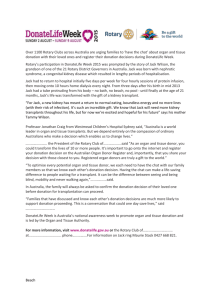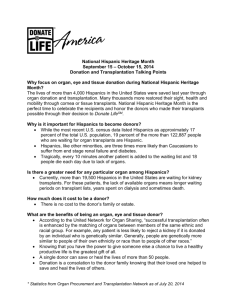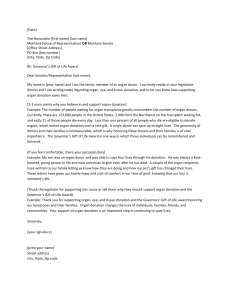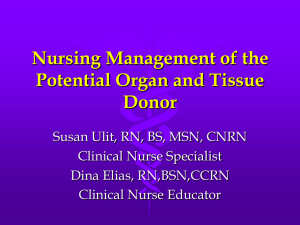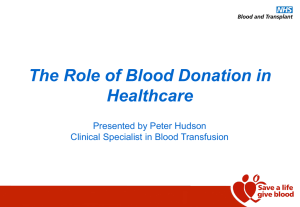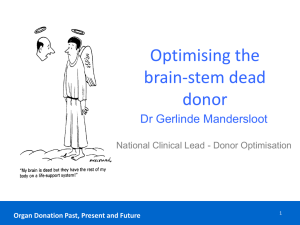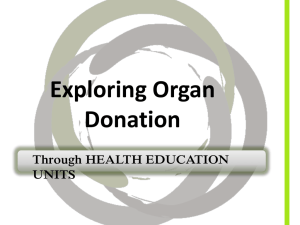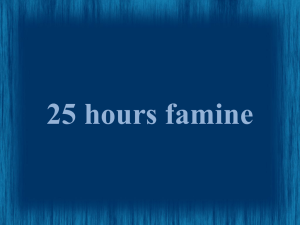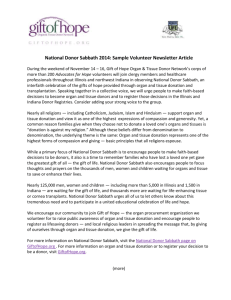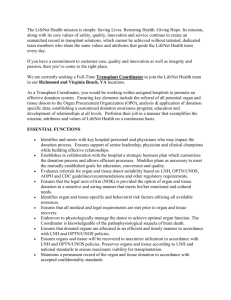DonateLife Community Speakers PowerPoint Presentation
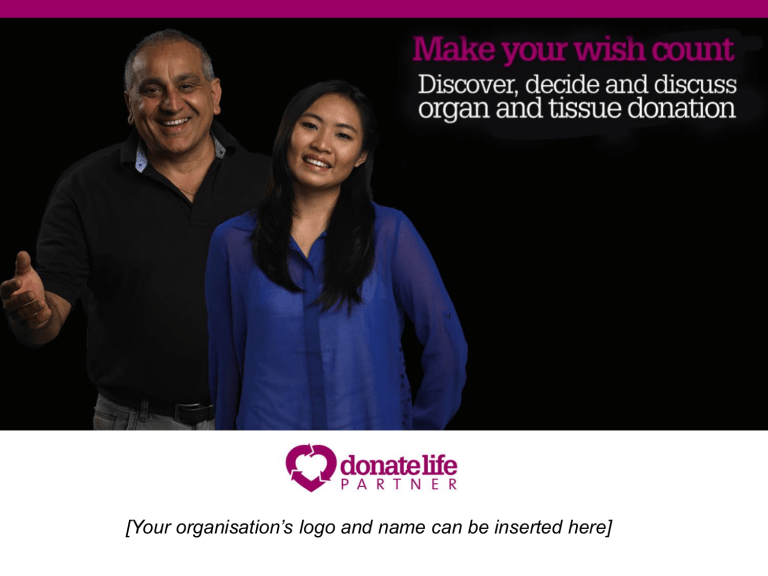
[Your organisation’s logo and name can be inserted here]
One organ and tissue donor can transform the lives of 10 or more people.
Did you know?
The majority of Australians are willing to become organ (78%) and tissue (75%) donors.
One organ and tissue donor can transform the lives of 10 or more people.
Even if you register as a donor, your next of kin will be asked to confirm your decision.
In Australia the family will always be asked to confirm the donation decision of the deceased before donation for transplantation can proceed.
More than 60% of families give consent for organ and tissue donation to proceed.
The situation in Australia
In 2013:
– 391 organ donors gave 1,122 Australians a new chance in life
– In Australia more than 60% of families gave consent for organ and tissue donation to proceed.
Around 1,500 Australians are on national transplant waiting lists.
Only around 1% of people actually die in hospital in the specific circumstances where organ donation is possible.
Deceased organ donors monthly
2009-2013
International comparison
* Data can be accessed at ANZDATA website www.anzdata.org.au
Why do people need transplants?
Inherited genetic condition
– Cardiomyopathy (affects the heart)
– Cystic fibrosis (affects the lungs)
– Bilary atresia (affects the liver)
Disease or damage to eyes
Congenital defects in young children
Severe trauma from accidents leading to organ failure
Rheumatic fever and other severe illness or disease
Burns can require skin grafts
Who can become an organ and tissue donor?
Almost anyone can donate
Don’t assume you are too old, too young or not healthy enough
People who cannot donate organs may still be able to donate tissue
Most religions support organ and tissue donation
Living donors can donate a kidney or partial liver
What can people donate?
ORGANS
KIDNEYS
LIVER
HEART
LUNGS
PANCREAS
TISSUE
CORNEAS
HEART VALVES
PANCREAS ISLETS
SKIN
BONE
TENDONS
LIGAMENTS
Why we need to start talking?
The majority of Australians (80%) recognise it is important to discuss donation decisions with family members and loved ones.
57% of Australians have discussed their organ and tissue donation decisions with their family, with 85% indicating the discussion was memorable.
47% of Australians are unsure or do not know the donation decisions of family members.
We need to normalise discussion about organ and tissue donation.
What can you do?
Ask and know your loved one’s donation decision
Ask your friends if they have discussed their donation decision with their next of kin.
Become a volunteer or member of a community organisation or DonateLife agency.
Organise a speaking event in your community.
Take part in DonateLife Week, the annual awareness week which is held in February.
Become a DonateLife Facebook friend.
Display DonateLife TV ads, posters and other materials in your community and start a discussion.
Discuss with your workplace/sporting organisation about becoming a DonateLife Friend.
